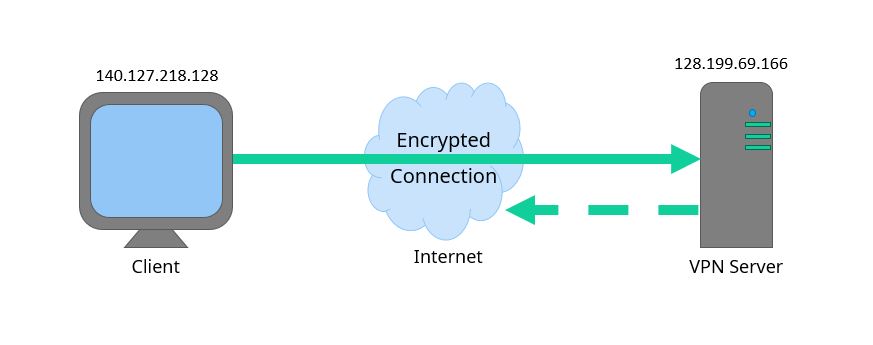VPN: Secured and Uncensored

We learned that our data is transfered through the Internet in forms of packets. But, how could we ensure that the our data is transfered securely and not intercepted by man-in-the-middle attacks (esp. when there is free WiFi)? This is where virtual private networks come in to mind.
Virtual Private Networks?
Virtual Private Network (VPN) is often thought of as a private tunnel that allows the user to connect to a private network across the Internet. Basically, the client has an encrypted connection to the server and connects to the Internet as if it was from the private server.

Types of VPN
Over the years, many tech experts have developed different types of protocols and proxies to achieve the goal of encrypted tunneling. VPNs could be established on our backbone network (switches and routers), or established directly on the client's device (P2P). Well known backbone based protocols are MPLS, VLANs, and Lightpath; and client based VPN protocols are IPSec, SSL and Shadowsocks.
Why the fuss?
There are basically two key benefits for deploying VPN, privacy/security and freedom of usage.
Privacy and Security
Since the connection between the client and server is encrypted, it would be difficult for a hacker to eavesdrop the information that is transported through our network. This could allow organizations to provide their employees access to their servers even though they are working from home or overseas. Or maybe in a public WiFi, where there is hardly any security between the user and the router, one could achieve a secured and encrypted connection to prevent data snooping.
Freedom of Use
Sometimes our network browsing is limited by our network and service provider, ISP, or even the government. Some information are censored and we could not have access to some particular information. VPN masks our initial IP address to the address of the server, thus it would be seen as if the browsing was done on the VPN server. Some VPN providers even take the initiative to route a few more times to increase the difficulty to trace the source IP.
With that being said...
It is true that VPNs are meant to protect the privacy of our infomation. But, does your VPN provider monitor your traffic and keep track of your information? Some VPNs even have data leaking problems or weak encryption that could easily decrypted by an intentional ISP or government. Thus, it's best to take a survey on different VPN service providers and check if they have a bad history. Or, you could even try to host your own VPN server.
